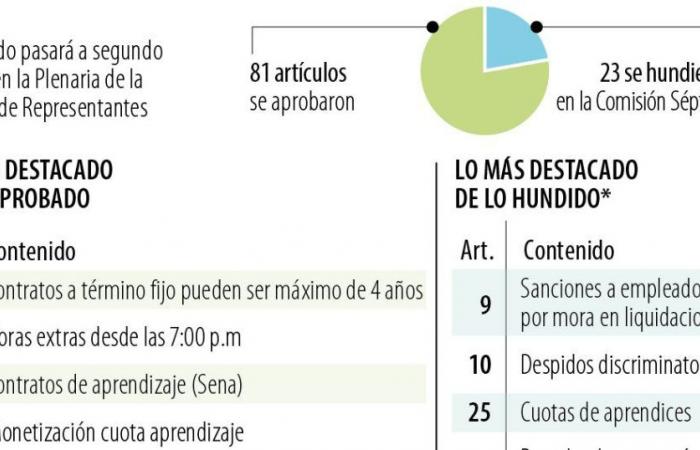Through the Ministry of Labor, the National Government seeks to revive the articles sunk in the Seventh Commission of the House of Representatives of its labor reform. Among the proposals, it is intended to endorse, by decree, the union regulation block.
A letter sent by the office of the deputy minister of labor relations, Edwin Palma, the Presidency, maintains that many of the articles presented can be executed via decree.
The letter states that several of the articles rejected revalidate workers’ rights, and They are in compliance with campaign promises, specifically, collective rights, and argued that the proposals are supported by international organizations.
“The OECD countries that do not have this instrument are Chile and Colombia, because Through collective bargaining, workers would have instruments to redistribute wealth and combat inequalityd, they could participate in the decisions that affect them, increasing democracy in labor relations and promoting union unity,” the vice minister’s letter states.
In summary, what they seek is to present in a single decree, the endorsement for the proposals of “limits to illegal labor outsourcing in the private sector”, and regarding the functioning of the coexistence committees that will prevent violence and harassment at work.
On the part of collective rights, which brings together what concerns unions, they seek to approve: unified collective bargaining, modernize strike rights, update the operating framework for arbitration courts and ensure the provision of minimum public services in demonstrations.
“That these initiatives, which are barely drafts, are filtered is good for the academic and political debate around labor law. A decree, like any executive rule, has prior construction and citizen consultation procedures.. And it is a power of the executive, which is also susceptible to judicial control,” said Vice Minister Palma.
It should be noted that the labor reform passed to the Plenary of the Chamber, with 81 articles approved and 23 eliminated, by the Seventh Commission. To mention some of those endorsed, it stands out: that the night shift starts at 7 p.m., that the mandatory work day of rest is paid in full, that paternity leave be six weeks and that internet and energy assistance be granted to those who work remotely.
It could be said with this balance that it was not a resounding victory for the Government, but, according to the project coordinator, representative María Fernanda Carrascal, the most important thing was approved, and they were the rights lost with the current labor system.
“The balance is positive because we have managed to recover the rights that were taken away with Law 789, such as 100% payment for work on a day of rest, the recovery of two hours of night shift, the indefinite-term contract as a rule and not as an exception for the hiring or payment of the full minimum wage for Sena apprentices“said the congresswoman from the Historical Pact.






